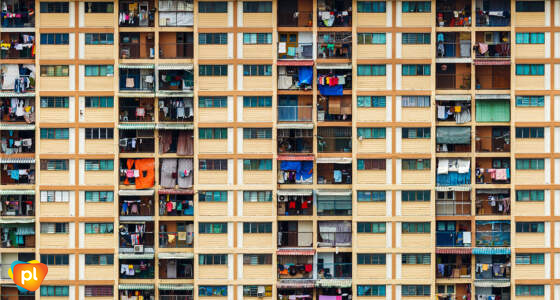
Waiting times for assessing a social housing application, a change of circumstance, or a housing transfer have ballooned from weeks to months. Receiving a housing offer can take years even with priority approval.
For people living with HIV, our anxiety can shoot through the stratosphere during these stressful wait times. If you have had little to no previous dealings with Family and Community Services Housing, or social housing, your expectations of a speedy transition from homeless to housed are understandable, yet somewhat unrealistic given the lack of housing stock at the moment and the system isn’t that speedy.
When you’re only income is Centrelink benefits, social housing is sometimes the only affordable option for safe and secure housing. Even after an offer has been received, sometimes the ‘offering’ can feel like a shoebox inside, no balcony, window view is of a dirty laneway etc. Managing social housing expectations is crucial to avoid feeling the cold hard slap of reality.
Renting privately can allow for the opportunity to pick and choose exactly what sort of home we want, within budget. Unfortunately, it’s a luxury that’s not available to many people living with HIV. It’s more about what properties become available that matches your basic requirements such as one or two bedroom, stairs or no stairs, bathroom modification and the housing allocation zone.
While the Housing Department allows you to refuse the first offer even if they deem it reasonable, rejecting the second reasonable offer will mean you are removed from the housing register and you will need to re-apply for housing assistance. If you reject a second offer because you consider it to be unreasonable (for example, you have mobility issues and the offer is on the 5th floor with no lift access), you will be able to reject this offer with suitable evidence (such as a letter from your GP). In this case, this will not be counted as an offer.
Another common situation in social housing is the range of housing stock and the condition of properties and location. For example, if you have a friend who already lives in social housing, their home might be a lovely, a near new townhouse with a courtyard, modern kitchen and bathroom, and district views and a BBQ in the common area. Your social housing offer on the other hand, might be a studio that is the size of a Long Bay prison cell, accessible only by six flights of stairs and a post-war kitchen.
This is a very frustrating experience, especially given both of you are paying the same rent (25% of your income). This situation is about what properties are available and when, including the age and condition of the property, as well as what matches your requirements (and maybe a pinch of luck). While, I don’t think any of us expect water views, a butler’s pantry and a Jacuzzi when applying for social housing, nor should we tolerate mouldy bathrooms and cockroach infested kitchens.
What we can expect at a minimum, is safe and secure housing that is accessible, close to services and allows us to maintain an independent and quality life.
Maintaining a good working relationship with social housing workers is important and will help reduce your anxiety or keep your spirits up during this uncertain time. Some suggestions to maintain a good working relationship include keeping up regular contact with your local housing office and finding out the name of your CSO (Customer Service Officer) who is assessing your application and can liaise with the allocations team who manage the wait list.
You also have the option to contact the Positive Life peer navigators (who live with HIV themselves) for support on (02) 8357 8386 or 1800 245 677 (freecall) or email contact@positivelife.org.au.
3 Comments
Comments are closed.







There was no mention of anti-social behaviour which can be a high risk situation for PLHIV and these anxieties must be managed as well. Also for PLHIVs in recovery managing the triggers of being exposed to drug-taking behaviours require additional managing
Thanks for your comment. You make some good points!
This previous post addresses some of the issues of anti-social behaviour as well as the triggers of drug-taking behaviour: http://www.positivelife.org.au/blog-housing-support/juggling-drugs-and-tenancy.html
We’ll look at making some post in the future about anti-social behaviour as high risk situations and triggers and how to manage these issues. Thanks for your comment.
A decent balanced article. However, many people who have been on the waiting list for an extended time, even on priority, find that no-one is actively working on your file. There is no-one assigned to it.